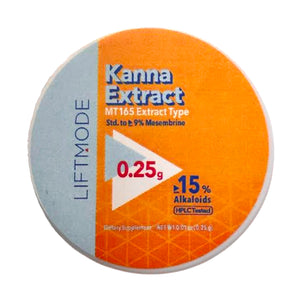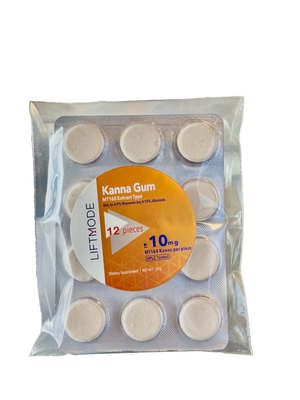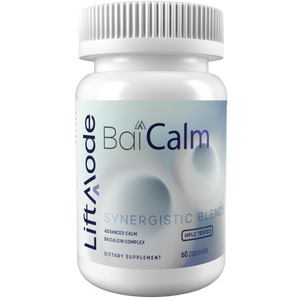Choline is an essential nutrient and a vital aspect to the proper functioning of your body. You can use choline bitartrate to improve your cognitive performance and mental capacity. In this article, we’ll explore some of the ways that your body uses choline bitartrate to achieve optimum health.
We’ll also take a look at different forms of choline, and which form is the best to take as a supplement. We examine whether there is a difference between choline bitartrate and choline. We’ve written this article in an easy way to understand, for both scientists and non-scientists alike.
[caption id=""attachment_959"" align=""alignright"" width=""640""]
![]()
Choline, a natural Nootropic[/caption]
Choline bitartrate versus choline
Many people wonder about the difference between choline bitartrate and choline. However, this needn’t be an issue because there is no difference! Choline bitartrate is just the most stable ionic form of choline to take as a supplement.
[1]
If you’re looking for ‘just plain choline’, you’ll get this from your diet, but even then the choline is often grouped with ions for extra stability. Choline is a reactive compound, and it tends to bind to ‘salts’ to stabilize.
There is no difference between choline and choline bitartrate. However, the bitartrate ion that is bonded to choline, takes up a significant percentage of the molecular mass. 2’400 mg of choline bitartrate is equal to roughly 1000 mg of pure choline – the rest is ‘bitartrate’.
[2]
Read our article:
What is Choline Bitartrate?
1. Converting Choline bitartrate to acetylcholine
One of the most important aspects of choline is its conversion to acetylcholine.
[3] Your body uses acetylcholine as its ‘learning molecule’. Acetylcholine fills in the spaces between your synapses, allowing electrical signals to flow properly through your brain.
[4]
[caption id=""attachment_960"" align=""alignright"" width=""300""]
![]()
Acetylecholine, the learning transmitter[/caption]
The conversion of choline to acetylcholine is vital for maintaining optimal cognitive performance as well as retrieving memories. In fact, we call the entire system of neuron signals - and the transfer of electrochemical ‘information packets’ - the “cholinergic signaling system”.
[5]
Many degenerative brain diseases, like Alzheimer’s Disease and dementia, result in the loss of acetylcholine in your brain.
[6] Scientists have used this information to help them study the importance of acetylcholine.
2. Turning Choline Bitartrate to betaine
Another great aspect of choline bitartrate is that it is converted to betaine.
[7] This is very important for the health benefits of choline bitartrate supplements.
Scientists have found that choline and betaine are potentially good at maintaining strong cardiovascular health.
[8] Although there is some confusion about the exact process by which this occurs, more and more scientists are convinced of the benefits of choline and betaine on cardiovascular health.
[caption id=""attachment_901"" align=""alignright"" width=""300""]
![]()
Liftmode Choline, 99%+ purity[/caption]
The problem with studying the effects of choline and betaine and how they help your heart and your blood is that there are many other factors to consider. We now know that choline and betaine are great at reducing inflammation, which in turn promotes a healthy heart.
[9]
However, the biochemical mechanisms of this pathway are super intricate and complex. There are other factors like omega 3s, vitamins B12 and B6, trans-fatty acids, certain animal proteins, and triglycerides, which all affect your cardiovascular health in different ways.
[10] [11]
3. Using Choline in cell membranes
Another important aspect of choline is its role in cell membranes. Choline’s function is to help with your body’s production of fatty membranes.
[12] These membranes help your cells to take nutrients in and extract nutrients, as well as providing a porous, solid, structure.
You really can’t overestimate the importance of choline for the proper function of your body and cells!
Other forms of choline
People also take other forms of choline. Taking choline bitartrate to improve your mental and physical health is the best rated form of choline.
[caption id=""attachment_961"" align=""alignright"" width=""300""]
![]()
Choline is super important for your cell membranes[/caption]
However, other forms of choline include CDP-Choline, which is choline bonded to an amino acid, uridine. However, this form of choline is far less effective than choline bitartrate. While choline bitartrate is roughly 41% choline, CDP-Choline is only around 18% choline.
Another form of choline is called Alpha-GPC, which is choline bound to glycerophosphate. Alpha-GPC is around 40% choline, by weight, making it similar to choline bitartrate.
2
Conclusion
In conclusion, we see that your body uses choline in a number of key functions. These include the production of acetylcholine for memory and learning, protecting cell membrane potentials, and the production of betaine for reducing inflammation.
Read about how Choline is used for
Alzheimer's Disease.
These processes are all good reasons that most people should think of supplementing with choline bitartrate to improve cognition and overall health!
Medical Disclaimer
Not intended to treat, diagnose, or cure any disease or ailment. Please read and fully understand potential adverse effects before using this product. These statements have not been reviewed by the FDA and are not written by a medical professional. Please consult your doctor before using any supplements, especially if you have any medical conditions. Tristan
B.Sc. in Molecular Biology and Biochemistry Researched & written by
Tristan and verified by the Liftmode.com Research Team
References
[1] Choline, Examine.com, available from https://examine.com/supplements/choline/
[2] What source of Choline Should I Use, Examine.com, available from https://examine.com/nutrition/what-source-of-choline-should-i-use/
[3] Generation of choline for acetylcholine synthesis by phospholipase D isoforms, Zhao D. et al., BMC Neuroscience20012:16, DOI: 10.1186, available from
http://bmcneurosci.biomedcentral.com/articles/10.1186/1471-2202-2-16
[4] Chapter 11: Acetylcholine Neurotransmission, Neuroscience Online, J.C. Waymire, PhD, UT Medical School at Houstan, available from
http://neuroscience.uth.tmc.edu/s1/chapter11.html
[5] Acetylcholine as a neuromodulator: cholinergic signaling shapes nervous system function and behavior, M.R. Picciotto et al., Neuron. 2012 Oct 4; 76(1): 116–129, doi: 10.1016, available from
http://www.ncbi.nlm.nih.gov/pmc/articles/PMC3466476/
[6] Alzheimer's disease and acetylcholine receptors, T Kihara and S Shimohama, Acta Neurobiol Exp (Wars). 2004;64(1):99-105, available from
http://www.ncbi.nlm.nih.gov/pubmed/15190684
[7] The Metabolic Burden of Methyl Donor Deficiency with Focus on the Betaine Homocysteine Methyltransferase Pathway, R. Obeid, Nutrients. 2013 Sep; 5(9): 3481–3495, Published online 2013 Sep 9. doi: 10.3390, available from
http://www.ncbi.nlm.nih.gov/pmc/articles/PMC3798916/
[8] Choline and betaine intakes are associated with reduced risk of nasopharyngeal carcinoma in adults: a case-control study, FF Zeng et al., Br J Cancer. 2014 Feb 4;110(3):808-16. doi: 10.1038, available from
http://www.ncbi.nlm.nih.gov/pubmed/24169354
[9] Dietary choline and betaine intakes in relation to concentrations of inflammatory markers in healthy adults: the ATTICA study, P Detopoulou et al., Am J Clin Nutr. 2008 Feb;87(2):424-30, available from
http://www.ncbi.nlm.nih.gov/pubmed/18258634
[10] Effect of vitamin B-12 and n-3 polyunsaturated fatty acids on plasma homocysteine, ferritin, C-reaction protein, and other cardiovascular risk factors: a randomized controlled trial, T Huang et al., Asia Pac J Clin Nutr. 2015;24(3):403-11. doi: 10.6133, available from
http://www.ncbi.nlm.nih.gov/pubmed/26420180
[11] Trans fatty acids – A risk factor for cardiovascular disease, M.P. Iqbal, Pak J Med Sci. 2014 Jan-Feb; 30(1): 194–197, doi: 10.12669, available from
http://www.ncbi.nlm.nih.gov/pmc/articles/PMC3955571/
[12] http://www.ncbi.nlm.nih.gov/pubmed/16636297




